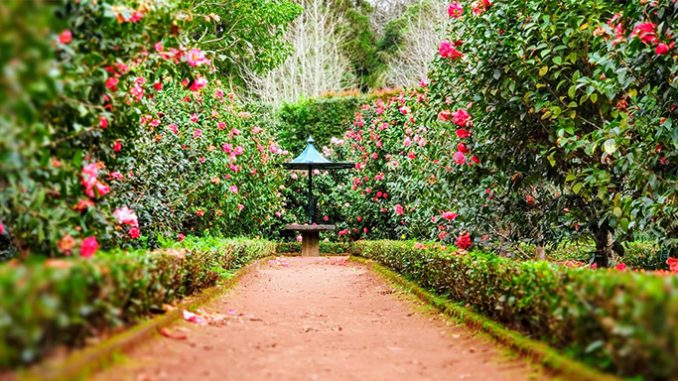
It was a fine afternoon at the University. The semester was in full swing, the day was growing late, and a student had stopped by the office to talk literature. The conversation turned—as it so often does these days–to questions of religion, politics, and culture. My visitor extolled the virtues of a cutting-edge think tank he follows.
“They’re really impressive,” he said. “Unlike others, they get that politics is downstream from culture.”
The conversation continued without interruption, which I take as a happy sign that my face did not betray the surprise and disappointment I felt in hearing this old chestnut of Andrew Breitbart escape the lips of a bright, well-educated, and well-meaning student.
As an account of politics and culture, the catchy metaphor had never been particularly compelling. I had assumed that the revolutions—social, political, cultural, and technological—of the past decade had been sufficient to finally and decisively consign it to oblivion. But here I had indisputable evidence to the contrary. Like the villain of a Hollywood horror series, the presumptively dead proverb was back: very much alive, well, and (worst of all) capable of seducing another generation of students.
It is my hope in this essay, not so much to bury the old myth, but to drive a stake through its heart.
The claim that “politics is downstream of culture” is at best a half-truth; it is at least equally true to say that culture is downstream of politics. One can, of course, point to moments when cultural shifts anticipated political changes, as in, for instance, the 2015 Obergefell decision.
But it is just as easy, and perhaps easier, to point to times when purely political decisions brought about widespread cultural change: for instance, the interstate highway system’s simultaneous destruction of generations-old neighborhoods and facilitation of urban sprawl; or the myriad ways American agricultural policy uprooted the traditional family farm in favor of an agricultural-industrial complex; or (more recently) the lasting effects of COVID-lockdowns on work, education, and religion.
Those politically driven cultural changes were perhaps accidental. Others were deliberately planned: in the past few months, DOGE investigations have demonstrated beyond any doubt that culture-building has been very much a political enterprise in recent decades. And apparently, organic cultural movements turn out to have been funded, and in some cases engineered, by the United States government and its dependents: from US-friendly media outlets propped up throughout the globe, to color revolutions (successful and otherwise) in Eastern Europe, to LGBT propaganda in Latin America.
More dramatically still, America’s hubristic “nation-building” adventures in the Middle East were nothing other than an attempt to will cultures into existence through the strategic application of political forces. And this says nothing of Western powers’ immigration policy. Politics is downstream of culture? The citizens of American border towns, or South Yorkshire, might beg to differ. For all that culture impacts politics, politicians can, almost at a whim, change a culture by simply importing a new one.
Indeed, even in those cases in which cultural trends seem to anticipate political change (the Obergefell decision, above), it is hard to say what came first, the cultural chicken or the political egg. That is, if Obergefell was enabled by cultural shifts in the 1990s and 2000s, one might suggest that those cultural shifts were in some ways dependent on antecedent political decisions: say, the acceptance of no-fault divorce in the 1960s and 1970s or Griswold vs. Connecticut’s legalization of birth control.
But these political actions can, in turn, be seen to have been anticipated by prior cultural shifts. And so we go, round and round and on and on, all the way back to the apple in the garden.
Thus, if we insist on the “stream” metaphor, it seems that politics and culture are somehow upstream and downstream of each other, as, for instance, in the opposing sides of a maelstrom. A distressing image, though perhaps (some may feel) an apt description of our current moment.
But what if politics and culture are not like a current at all? It is not as though the aquatic metaphor is the only one available to us.
Far greater thinkers, and incomparably greater poets, have been applying themselves to the question of politics and culture for millennia. Dante’s Commedia gives us thousands of lines of political imagery and commentary: indeed, an entire canto (Purgatorio 6) is little more than a series of imagistic reflections on the relationship between law, culture, and the ruler: Italian culture is a horse, the law the bridle, and the emperor the rider; Rome is a widowed spouse awaiting the return of her husband; fickle Florence changes her laws, customs, and currency like an infirm old woman tossing and turning on a feather bed; Italy is a garden laid waste in the absence of a caretaker.
In this last image, Dante draws close to his great master, Vergil, whose Georgics likewise presents politics as cultivation: the ruler is the farmer and culture, the farm. Like the farmer, the ruler must know the lay of his land, the quality of his soil, and how to nurture various crops. And he must labor ceaselessly to keep his estate in order, as “all things by nature are ready to get worse, / lapse backward, fall away from what they were.”
Not coincidentally, the world’s third great political poet–Shakespeare–uses the same image in his Richard II. The “sea wallèd garden” of England is, under the fainéant king’s misrule, run to rot and ruin as he has not “trimmed and dressed his land”; the only hope for restoration lies in the arrival of someone who will.
One wonders whether the world’s greatest poets were on to something. For, unlike the “stream” metaphor, the agricultural imagery favored by the political poets has the advantage of according with the way politics and culture actually work. Christopher Dawson, the 20th century’s greatest student of culture, offers a picture of culture (and its relation to politics) far too complex to be accommodated by any simple, one-dimensional metaphor. On the Dawsonian account, culture “involves many different factors, so that a highly developed culture is perhaps the most complex phenomenon that it is possible to study.”
Indeed, even the simplest cultures arise from a combination of sociological, economic, geographic, and moral factors; they can be changed by technological, moral, or political developments. Or by the introduction of a new religion, or the intrusion of a prophet, madman, or seer. Dawson’s genius as a historian lies in his ability to weave these disparate elements into a single narrative tapestry. It is clear that in this more complex account, the simplistic image of streams can have no place at all, and still less the idea of a stream flowing in only one direction. Instead, these various factors exist in a continually shifting equilibrium in which economics, custom, and politics all play their part: politics, culture, and human agents together form an entire ecosystem, not merely a river.
What does this mean for those, like my student, interested in the relation of politics and culture? It depends. Adopting a new image does not mean that the young should favor the abstract over the concrete, nor does it suggest that we ought to privilege the national over the local. The next generation should marry, have children, and raise them as best they can; they certainly should not focus solely on political activism or neglect the role of culture. Dante, Shakespeare, Vergil, and Dawson would have viewed this descent into mere activism as an unforgivable error: they knew the importance of culture and the necessity of attending to it.
But we will more effectively address the problems of culture and politics if we have a clearer vision of the relationship between them. For this reason, it is time to abandon the “stream” proverb and return to the older and richer image favored by the world’s great poets. That is: we must return to the garden, to till and to keep it.
If you value the news and views Catholic World Report provides, please consider donating to support our efforts. Your contribution will help us continue to make CWR available to all readers worldwide for free, without a subscription. Thank you for your generosity!
Click here for more information on donating to CWR. Click here to sign up for our newsletter.






